Africa
Tebboune and Macron commit to enhancing bilateral cooperation between Algeria and France
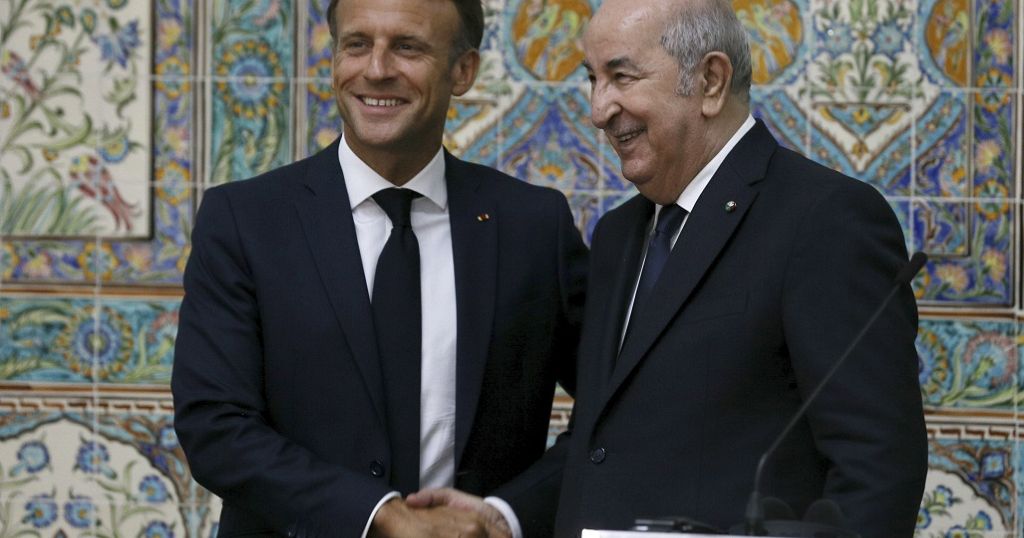
French President Emmanuel Macron and Algerian President Abdelmadjid Tebboune agreed on Monday during a phone call to revitalize their bilateral relationship. Following months of tension, this renewed partnership is expected to lead to a resumption of security and migration cooperation, as stated in a joint communiqué.
French President Emmanuel Macron and Algerian President Abdelmadjid Tebboune agreed on Monday during a phone conversation to revitalize their bilateral relationship.
Following months of tension, this renewed partnership is expected to lead to a resumption of security and migration cooperation, as stated in a joint communiqué.
President Macron also expressed his trust in President Tebboune’s judgment and urged for a gesture of compassion and humanity towards Franco-Algerian writer Boualem Sansal, who was sentenced to five years in prison by an Algerian court last Thursday.
The two leaders reaffirmed their commitment to reestablish the productive dialogue they initiated with the Algerian Declaration in August 2022, which had previously resulted in significant gestures regarding historical memory.
The communiqué emphasized that the strong ties—especially human connections—between France and Algeria, along with their respective strategic and security interests, and the challenges facing Europe, the Mediterranean, and Africa, necessitated a return to an equal dialogue.
They highlighted their shared ambition for a robust, peaceful, and respectful relationship that honors each country’s interests.
On the day of Eid al-Fitr, which marks the end of Ramadan, the two presidents decided to promptly resume security cooperation, crucial in the fight against terrorism and human trafficking.
Additionally, the communiqué stressed the need to immediately restart migration cooperation, which has been at the center of recent tensions, aiming for results that address the concerns of both nations.
French Foreign Minister Jean-Noël Barrot is set to visit Algiers on April 6 to swiftly elevate the bilateral relationship to the level of ambition desired by both heads of state, as stated in a press release.
The two presidents have also agreed in principle to hold a future meeting, although further details were not provided.
The bilateral relationship faced a significant setback following President Macron’s announcement in July 2024, where he expressed strong support for a Moroccan sovereignty plan for Western Sahara, a territory with an undefined status according to the UN, claimed by the Polisario independence movement, which is backed by Algeria.
In the fall, tensions escalated further with the arrest of Boualem Sansal for comments made to the French media outlet Frontières, known for its far-right stance, which were deemed to undermine Algeria’s territorial integrity.
Additionally, the issue of the repatriation of Algerians facing expulsion from France has further strained relations between the two countries.
The crisis reached a peak after the February 22 attack in Mulhouse, which resulted in one death and was carried out by an Algerian national who had been subject to multiple repatriation requests that Algeria had denied.
Africa
Sahel ministers visit Moscow to strengthen ties with Russia
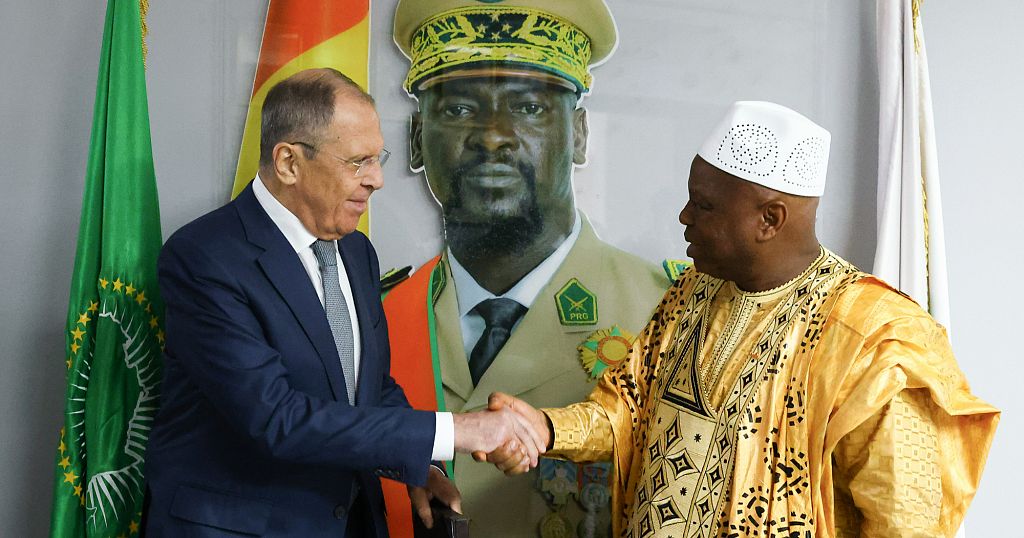
In a significant shift in the region’s diplomatic and security landscape, the foreign ministers of Mali, Burkina Faso, and Niger will visit Moscow this week to deepen their strategic ties with Russia.
Scheduled for April 3-4, this marks the first AES-Russia consultations since the formation of the Confederation of Sahel States (AES) in 2024.
The visit underscores a growing pivot away from former colonial power France and the regional organization ECOWAS, with these West African nations, governed by military juntas following a series of coups between 2020 and 2023, seeking political and military support from Moscow.
This realignment comes as the Sahel region grapples with ongoing jihadist insurgencies that have devastated local populations, claiming thousands of lives.
As part of the AES’s Year 1 Roadmap, chaired by Mali, the ministers will engage with Russian Foreign Minister Sergei Lavrov to discuss enhanced cooperation in defense, security, and economic development.
The AES sees the visit as a “crucial step” toward advancing its shared goals.
Russia has already contributed military support via its Wagner Group, and the three nations have signed defense agreements with Moscow. Collaboration is also underway in the energy and mining sectors.
The visit follows the AES’s decision to withdraw from multiple international organizations and establish a joint 5,000-strong military force aimed at tackling regional terrorism.
By strengthening ties with Russia, the Sahel states aim to bolster their security efforts and assert greater autonomy from Western influence.
Africa
Congo commutes death sentences of 3 Americans convicted in failed coup
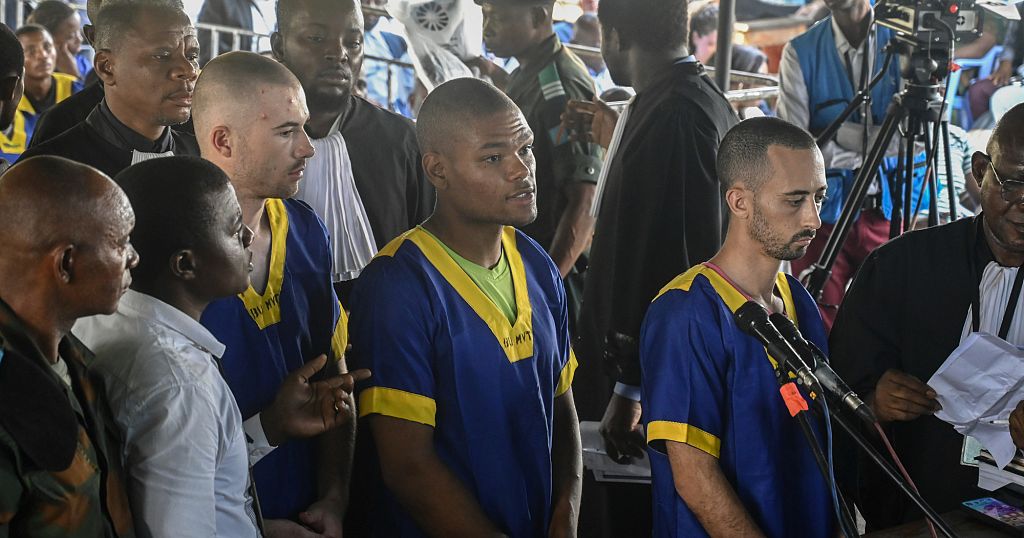
Congo’s President Felix Tshisekedi has commuted the death sentences of three Americans convicted on charges of participating in a botched coup attempt in the country’s capital Kinshasa last year, an official said Wednesday.
A presidential order commuted their death sentences to life imprisonment, Congolese presidential spokesperson Tina Salama said, more than six months after a military court sentenced the three and more than 30 others to death for the failed coup.
The pardon came amid efforts by Congolese authorities to sign a minerals deal with the U.S. in exchange for security support that will help Kinshasa fight rebels in the conflict-hit eastern region.
Six people were killed during last year’s botched coup attempt, led by little-known opposition figure Christian Malanga, that targeted the presidential palace in Kinshasa as well as a close ally of Tshisekedi. Malanga was fatally shot while resisting arrest soon after live-streaming the attack on his social media, the Congolese army said.
Malanga’s 21-year-old son Marcel Malanga, who is a U.S. citizen, was among the Americans convicted for participating in the coup plot. The other Americans are Tyler Thompson Jr., 21, a high school friend of the younger Malanga who flew to Africa from Utah for what his family believed was a free vacation, and Benjamin Reuben Zalman-Polun, 36, who is reported to have known Christian Malanga through a gold mining company.
Marcel Malanga told the court that his father had forced him and Thompson to take part in the attack.
“Dad had threatened to kill us if we did not follow his orders,” he said previously during hearings.
Most of the defendants were Congolese but also included a Briton, Belgian and Canadian. Their charges included attempted coup, terrorism and criminal association. Fourteen people were acquitted in the trial.
Meanwhile, the U.S. Department of State announced late Tuesday that President Donald Trump’s new senior advisor for Africa, Massad Boulos, will travel to Congo and three other African countries — Rwanda, Kenya, and Uganda — starting April 3.
Boulos will advance efforts for sustainable peace in eastern Congo and promote U.S. private sector investment in the region, the State Department said in a statement.
Africa
Guinea’s Junta sets referendum for September sparking fresh hopes for democracy
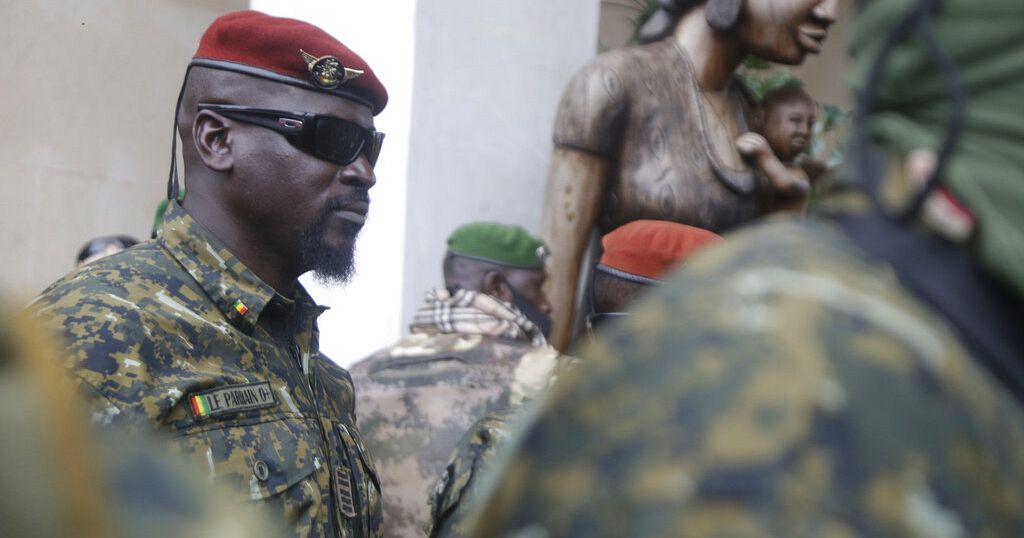
Guinea’s military Junta has announced it will hold a constitutional referendum on the 21st September 2025.
It’s hoped the vote will put the country back on the path to civilian rule following several broken promises by the military pledging to organise the referendum.
General Mamadi Doumbouya, head of the junta, had promised in his New Year’s address that 2025 would be a “crucial electoral year to complete the return to constitutional order”, without indicating a timetable.
The new date set for the referendum comes after the military missed a December 31st deadline..to launch the democratic transition.
The delay triggered anger from opposition figures, many took to the streets bring the capital, Conakry to a standstill.
The proposed constitutional changes on the ballot include setting presidential term limits, voters will also decide on whether current junta members are allowed to contest in elections
The referendum’s results could mark a departure from the “transition charter” drawn up by the military shortly after the coup that blocks members of the junta from running.
Guinea’s military leaders have long been accused of trying to stifle the opposition by arresting critics, including journalists, on false charges.
-
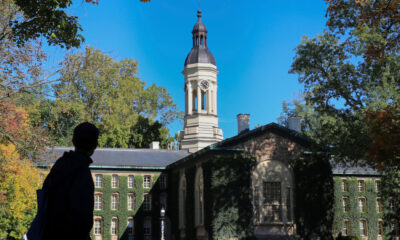
 Education1 day ago
Education1 day agoTrump administration suspends a host of federal grants to Princeton University
-
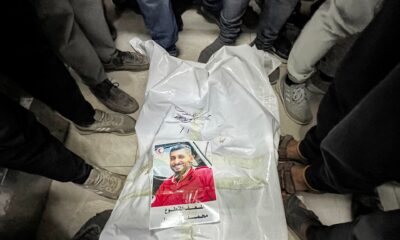
 Middle East2 days ago
Middle East2 days agoYet another Israeli war crime is buried in the sand as the world looks away | Israel-Palestine conflict
-

 Lifestyle2 days ago
Lifestyle2 days agoNative spring ephemerals bring early color to the garden
-

 Sports2 days ago
Sports2 days agoJurickson Profar: Braves outfielder suspended 80 games after testing positive for banned substance
-

 Lifestyle2 days ago
Lifestyle2 days agoThere’s a new push to put whole milk back in school meals. Here’s what you should know
-
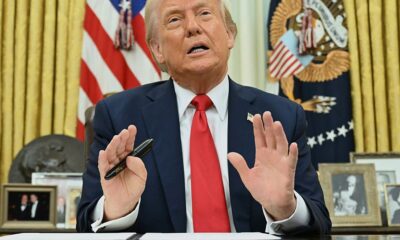
 Africa2 days ago
Africa2 days agoTrump hints at third term possibility, despite constitutional limits
-

 Lifestyle2 days ago
Lifestyle2 days ago‘The Friend’: When the star of the movie is a very good boy
-

 Sports2 days ago
Sports2 days agoWhat are the ‘torpedo’ bats in MLB that have everyone talking?




